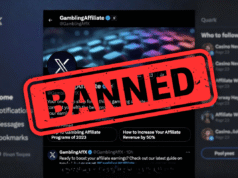A new round of tribal lawsuits has been filed against Kalshi Inc., a New York prediction market operator that has been trying to offer contracts based on the outcomes of professional sports games. On August 20, the Ho-Chunk Nation of Wisconsin brought a case in federal court, building on the arguments that three California tribes made earlier this year.
The lawsuit, filed in the US District Court for the Western District of Wisconsin, argues that Kalshi’s sports event contracts are not innovative financial products but illegal bets that break federal law, violate state constitutions, and undermine tribal sovereignty.
“By making its sports wagering contracts available on the Nation’s Indian Lands and offering for play to the general public the class III game of sports wagering, Kalshi violates the Nation’s Compact, Ordinance, and Gaming Commission regulations, and directly interferes with and impairs the Nation’s sovereign right to regulate gaming on its Indian Lands.” – Ho-Chunk Nation vs Kalshi Inc et al
“While masquerading as novel commodities and futures products, these event contracts are, substantively, nothing more than illegal, unregulated wagers on the outcomes of sporting events,” the filing states..
Ho-Chunk Nation files lawsuit against Kalshi in Wisconsin
For the Ho-Chunk Nation, which runs casinos across Wisconsin under a federally approved compact, the lawsuit against Kalshi is about maintaining control over gaming on tribal lands. The complaint stresses that the prediction market’s operations “directly interferes with and impairs the Nation’s sovereign right to regulate gaming on its Indian Lands.”
Tribal leaders caution that a surge of unregulated sports contracts could eat into casino revenues that support essential community services. The lawsuit states: “Loss of revenue has a direct impact on tribal governmental functions and has a tangible effect on the services and programs the tribal governments provide to their members and all persons who live, work, and visit the Nation’s Indian Lands.”
California tribes lead the way
The Ho-Chunk Nation’s lawsuit comes after three California tribes, including the Rincon Band of Luiseño Indians, went to court this spring to stop Kalshi from listing similar contracts in their territories. Taken together, these cases show a coordinated effort by tribes to push back against financial firms moving into the profitable sports betting market.
BREAKING: Three federally recognized California Indian tribes have sued Kalshi and Robinhood in CA federal court, alleging that the two companies are unlawfully engaging in sports betting by offering sports-outcome event contracts on the tribes’ Indian lands in violation of IGRA. pic.twitter.com/renw1XBtjz
— Daniel Wallach (@WALLACHLEGAL) July 23, 2025
Like the lawsuits in California, the Wisconsin case argues that Kalshi’s contracts violate the Indian Gaming Regulatory Act, which gives tribes and states authority over Class III gaming, including sports betting, through tribal-state compacts.
Regulatory ambiguity at CFTC
Kalshi has said it operates legally as an exchange designated by the Commodity Futures Trading Commission. Company executives argue that sports contracts should be treated as derivatives, not gambling.
But the CFTC itself has long recognized the danger of blurring that line. In 2011, the agency banned certain event contracts that “involve, relate to, or reference… gaming.” And in legislative history cited by the Ho-Chunk complaint, senators explicitly warned against treating sports wagers as tradable financial contracts: “These types of contracts would not serve any real commercial purpose. Rather, they would be used solely for gambling.”
Even with those restrictions in place, Kalshi went ahead and self-certified new sports products in early 2025, teaming up with Robinhood to promote “Super Bowl betting” and March Madness contracts across the country. Advertising materials described the company as “The First Nationwide Legal Sports Betting Platform” and boasted that its markets were “Legal in all 50 States.”
The Ho-Chunk Nation calls those claims “false and misleading,” alleging a deliberate campaign to normalize unlicensed wagering.
Kalshi has told regulators and the courts that its markets are legitimate event contracts governed by the Commodity Exchange Act. But the Ho-Chunk Nation points to longstanding federal prohibitions, noting that the CFTC has barred contracts that “involve, relate to, or reference terrorism, assassination, war, gaming, or an activity that is unlawful under any State or Federal law.”
ReadWrite has reached out to Kalshi for comment.
Featured image: Canva / Kalshi











